Conservation Help for Horse Owners
Main_Content
 With more than 90,000 horses, Maryland boasts more horses per acre than any other state. If not managed sustainably, this high-density horse population can impact the health of local waterways and the Chesapeake Bay. If you own horses in Maryland and need help controlling runoff and erosion on your farm, assistance is just a phone call away. Your local soil conservation district can help you plan and install many types of conservation practices to protect natural resources and improve the health of your horses. Districts have worked with hundreds of farmers to address many common concerns,
With more than 90,000 horses, Maryland boasts more horses per acre than any other state. If not managed sustainably, this high-density horse population can impact the health of local waterways and the Chesapeake Bay. If you own horses in Maryland and need help controlling runoff and erosion on your farm, assistance is just a phone call away. Your local soil conservation district can help you plan and install many types of conservation practices to protect natural resources and improve the health of your horses. Districts have worked with hundreds of farmers to address many common concerns,
including:
-
Mud and manure
- Over-grazed pastures
- Eroded streambanks and degraded waterways
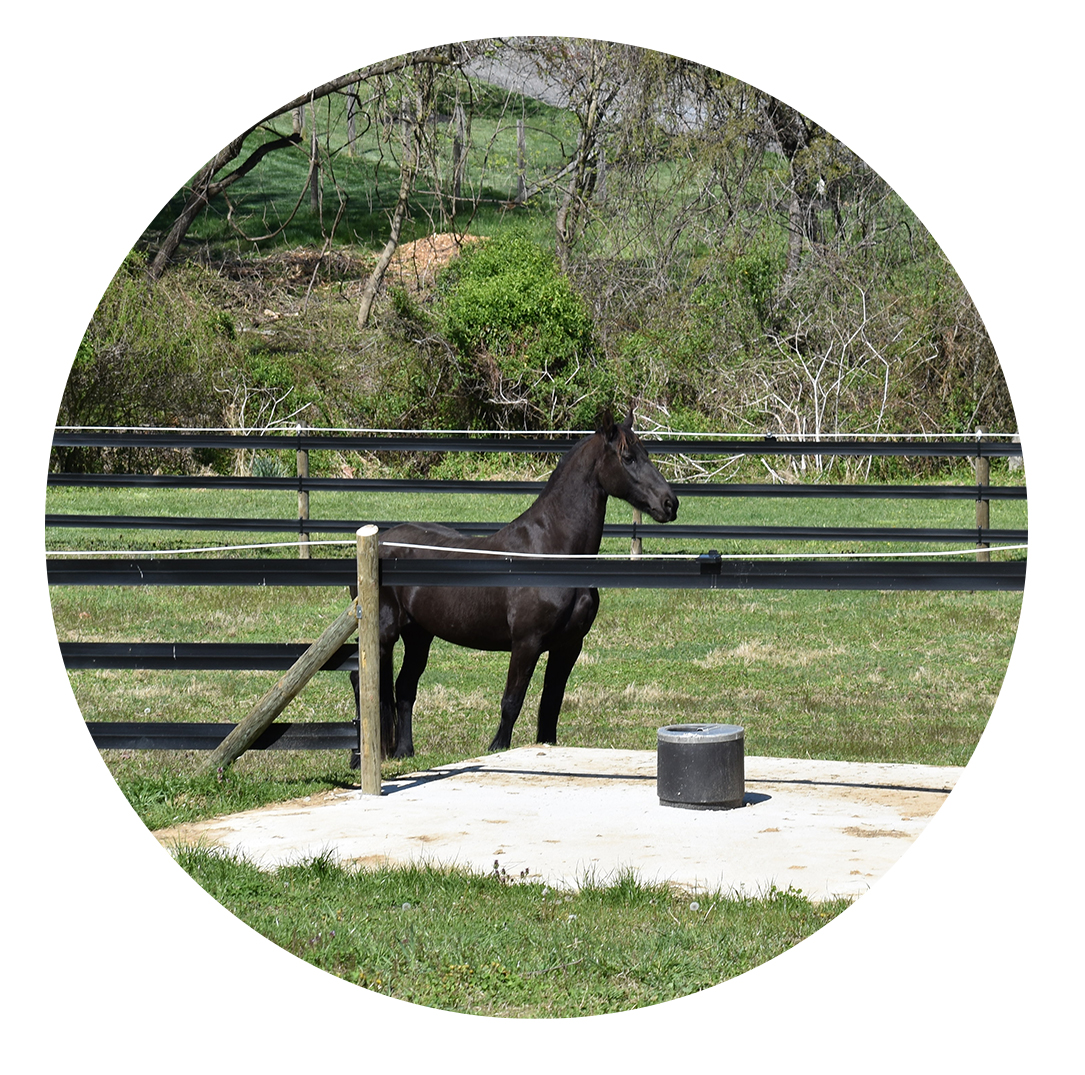 New: Conservation Grants for Small Equine Operations
New: Conservation Grants for Small Equine Operations
Cost-share funding to install a range of popular best management practices is now available for small-scale equine and livestock operations
with at least 1,000 pounds of live animal weight. This expansion of the Maryland Agricultural Water Quality Cost-Share (MACS) Program extends our popular conservation assistance program to these smaller farms. Examples of qualifying conservation practices that benefit equine and livestock operations include:
- Watering Facilities – Up to 87.5% cost-share
- Pasture Management – Up to 87.5% cost-share
- Animal Waste Storage Structures – Up to 87.5% cost-share
- Heavy Use Area Protection – Up to 87.5% cost-share
- Roof Runoff Structures – Up to 87.5% cost-share
- Stream Exclusion Fencing – Up to 100% cost-share
- Interior Pasture Fencing – Up to 50% cost-share
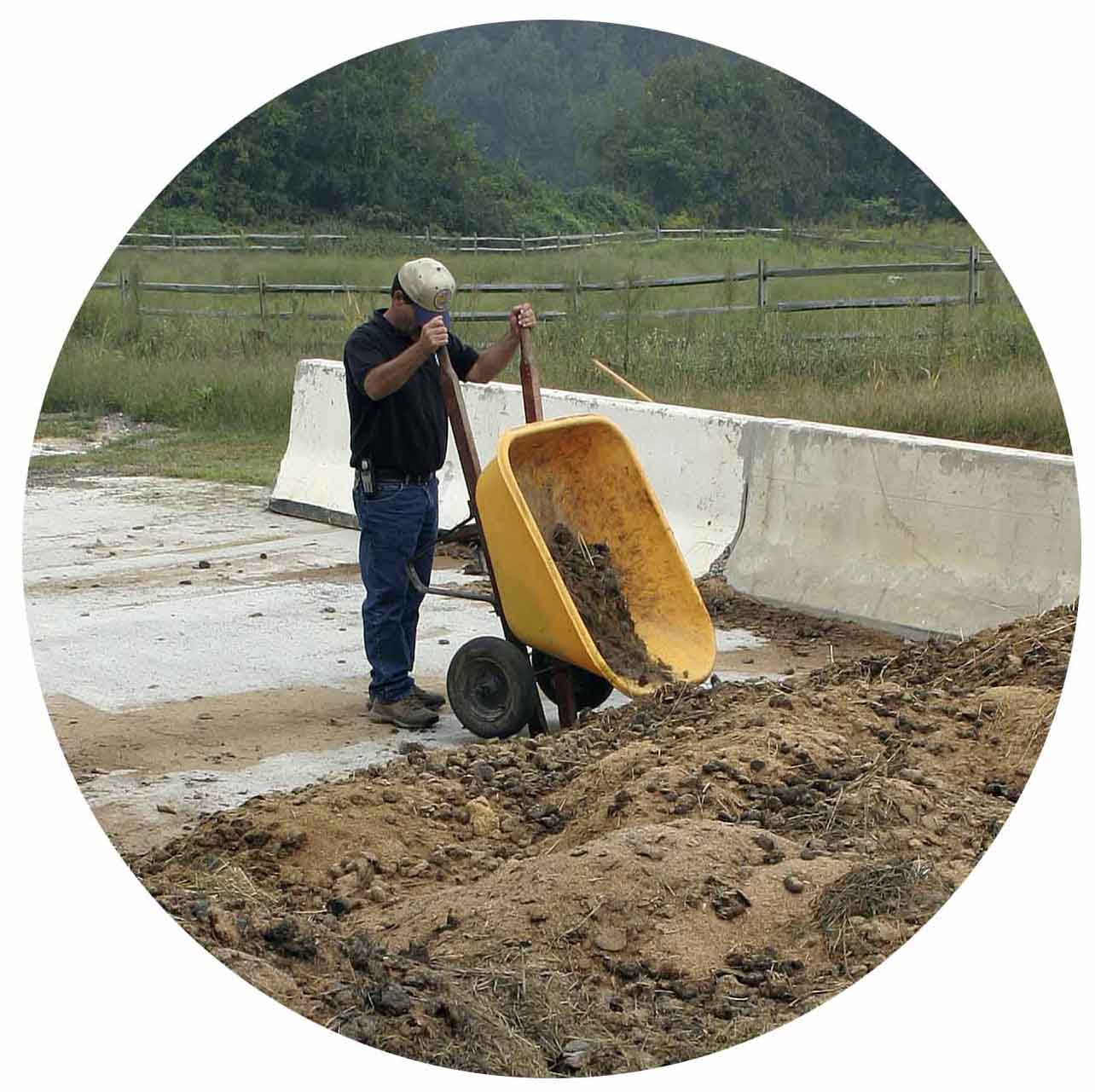 Manage That Manure
Manage That Manure
A 1,000 pound horse produces 40-50 pounds of manure every day! Here are some best management practices that all horse farms—large and small—can use to help keep manure and its nutrients out of waterways.
Give Mud the Boot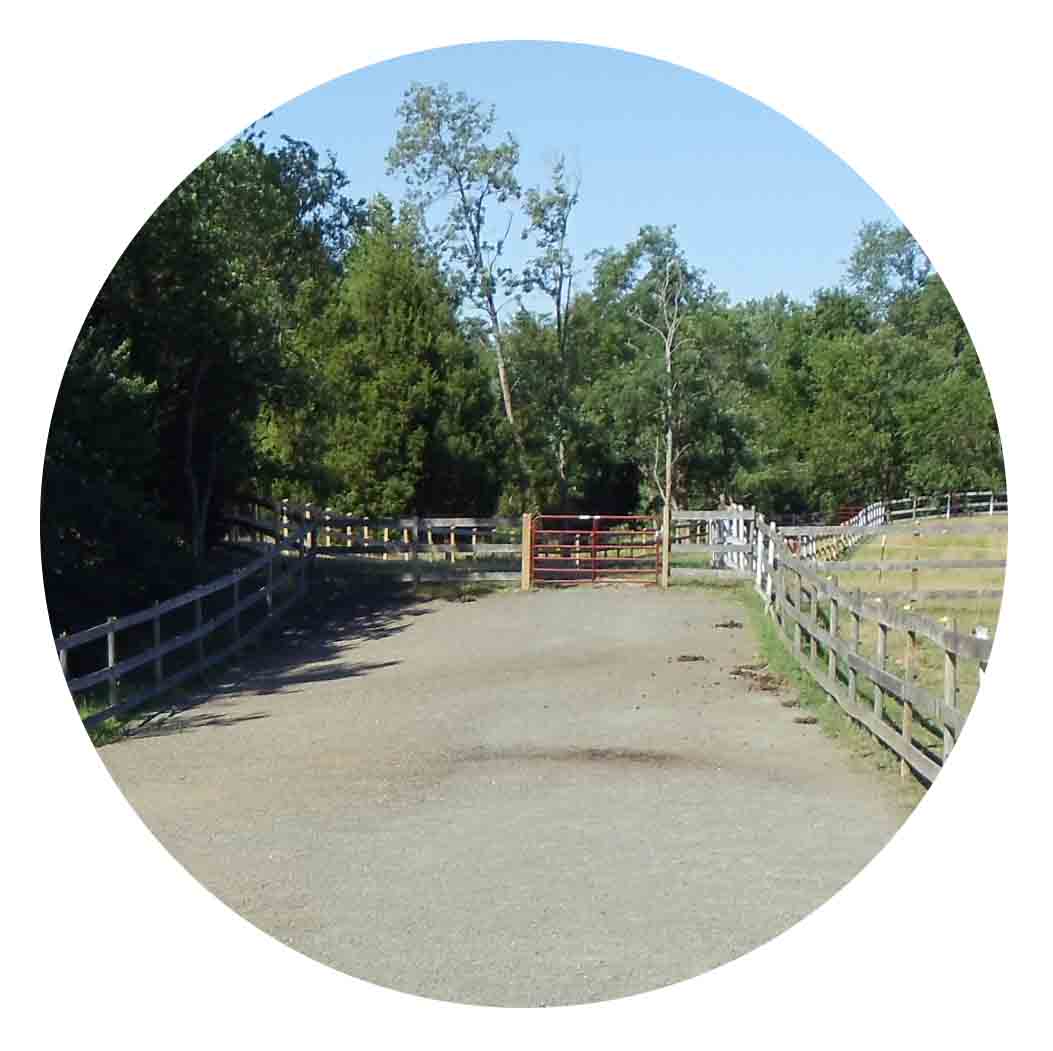
Mud can be a big problem
wherever animals congregate, especially around gates, watering troughs, barn entrances, and feeding pads. Follow these tips if mud
is making you and your horses miserable:
-
Divert surface and roof runoff water away from pastures and paddocks.
- Plant a vegetative cover around buildings or on steep slopes to minimize erosion and absorb nutrients while improving the appearance of your property.
- Install a heavy use pad.
Contact your LOCAL SOIL CONSERVATION DISTRICT to learn more and
see if you qualify for cost-share.
Install Rain Gutters 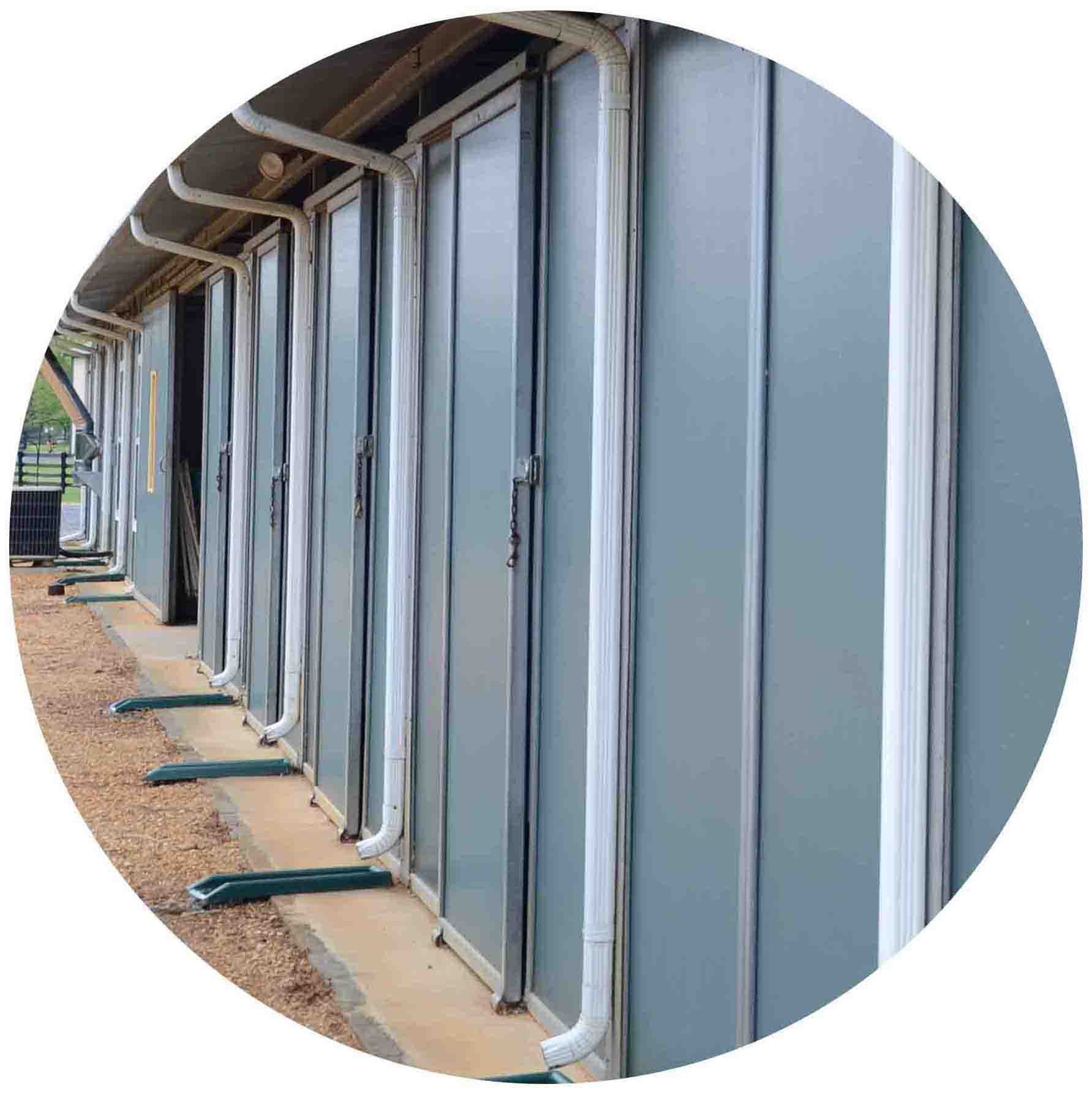
Keeping water away from farm buildings by installing rain gutters and downspouts can help reduce mud.
- Divert clean rainwater away from animal confinement areas.
- Develop a roof runoff management system around buildings.
- Protect downspouts from animal and livestock damage.
Contact your
LOCAL SOIL CONSERVATION DISTRICT to learn more and see if you qualify for cost-share.
Keep Your Pastures Green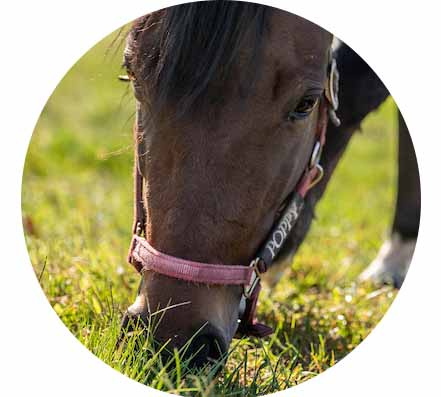
Paddocks, riding rings, trails, and
pastures are continuously disturbed areas, under constant physical stress from horses’ hooves. Overgrazed
pastures can lead to exposed bare soil that easily erodes. Your local soil conservation district can develop a grazing plan for your operation that is based on your pasture soils, acreage, and grasses. These plans are provided free of charge and include advice on the best way to use your land.
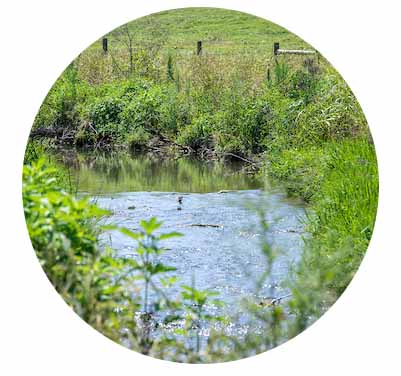 Protect Local Streams
Protect Local Streams
Your local soil conservation district can provide free technical assistance to design
stream protection measures for your horse farm. These include:
Know Your Soil 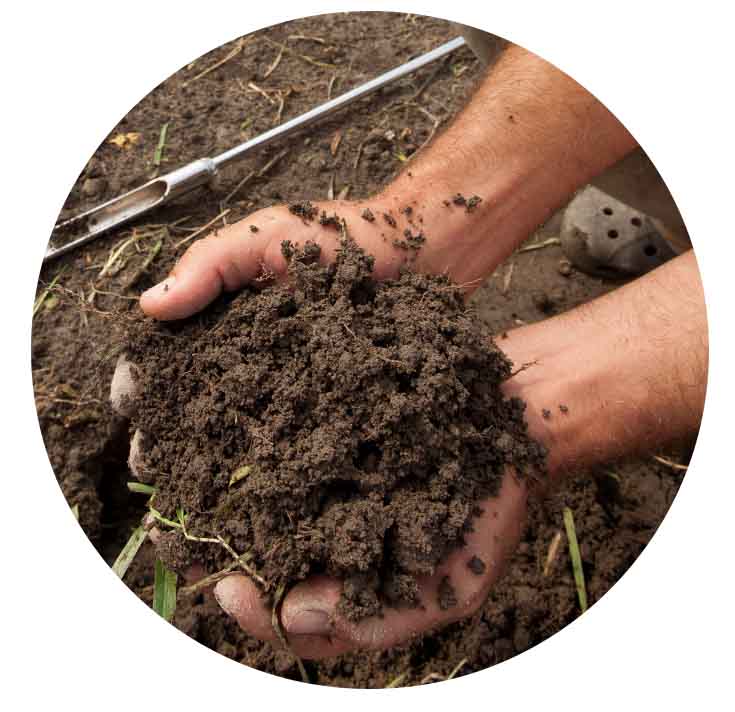
An inexpensive soil test can help you determine the type and amount of fertilizer needed for good pasture growth. These practices can help you improve your soil's health:
-
Reduced tillage—Use no-till or reduced tillage practices to reduce erosion, preserve the soil structure, encourage aggregation, and keep the soil healthy.
-
Forage planting—Over time, plant several forage varieties in your pastures for diversity to build healthy soils, manage erosion, and feed beneficial soil microorganisms.
-
Prescribed grazing—Manage grazing wisely based on pasture grass heights
-
Manure recycling—Use manure to fertilize your pastures. It makes a great natural fertilizer and soil conditioner. LEARN MORE ABOUT SOIL HEALTH.
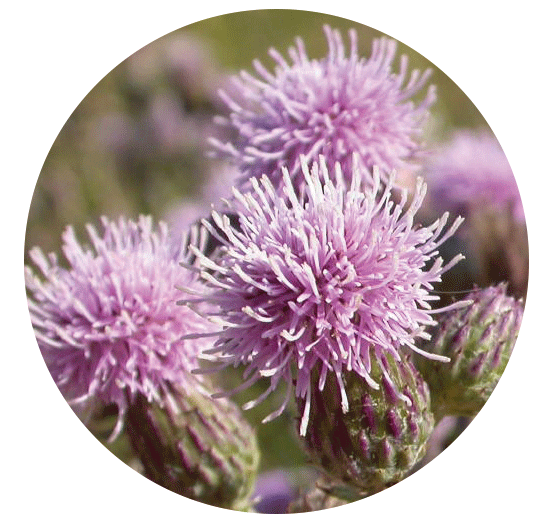 Control Weeds
Control Weeds
Weeds spread quickly, so look for new weed patches on your property regularly. Act immediately to treat them and educate yourself on common weeds that are toxic to horses such as buttercups, poison hemlock and wild cherry. Be sure to correctly identify weeds for proper control. Remember, weed control alone is not enough. It is also necessary to modify the practices that caused weeds to become established in the first place! LEARN MORE ABOUT WEED CONTROL.
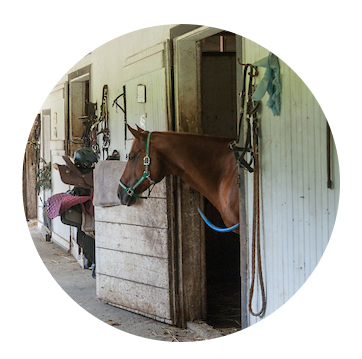
Do You Need a Nutrient Management Plan?
If you have
8,000 pounds or more of live animal weight or your farm generates at least $2,500 in gross income, you are required by Maryland law to manage your operation using a nutrient management plan that has been approved by MDA. Gross income from selling or boarding horses and other horse related and agricultural activities would count toward the $2,500 threshold. LEARN MORE ABOUT THIS REQUIREMENT.
For More Information
MDA's Horse Outreach Workgroup (HOW) has assembled a group of forage, equine, and land conservation experts to provide information on important topics including manure management, pasture establishment and management, and mud control on horse farms. Please see the information panel for links to services and resources that can help you improve the natural resources on your horse farm.

Updated 12/11/25